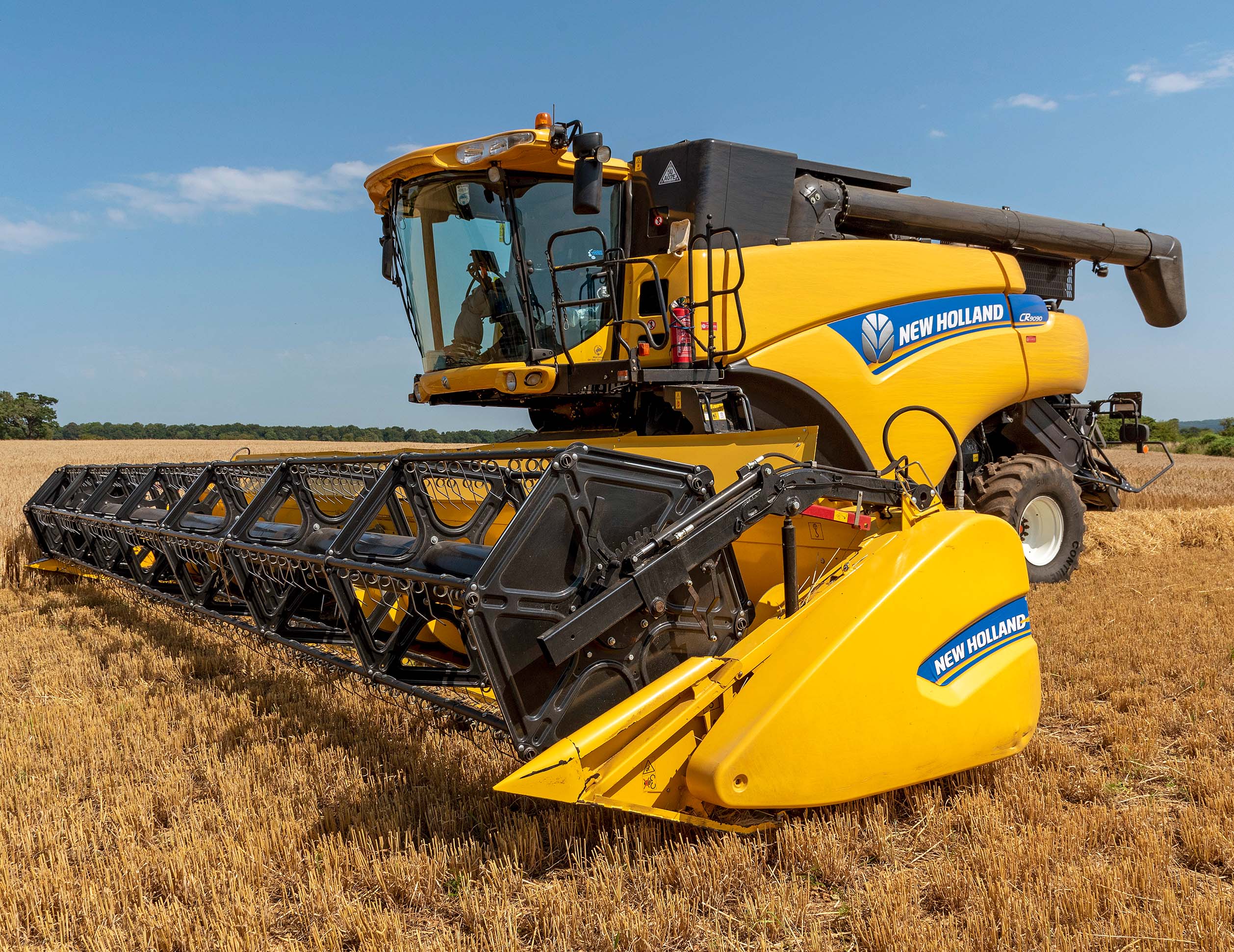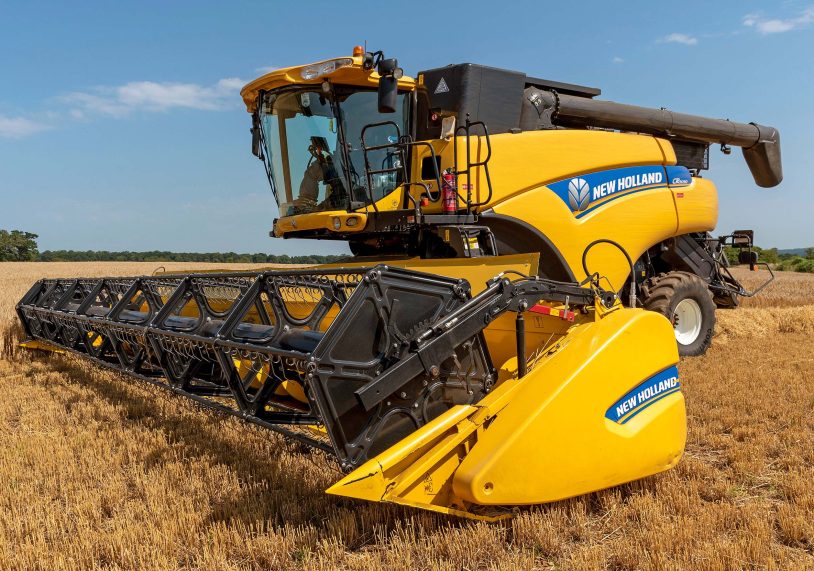
On the Farm in August
Remember that line from Only Fools and Horses, when Trigger explains to Del and Rodney that road sweepers have an old saying: “Look after your broom.”

“And your broom will look after you?” continues Rodney, to which Trigger replies “No Dave, it’s just ‘look after your broom.’”
Well, any arable farmer worth their grain will say that looking after your combine makes sense. Our New Holland is maintained by Ryan at Russell’s, with an inspection that took place back in February followed by our pre-harvest maintenance and servicing. The company has 12 depots including Tuxford and Harby depots, and Ryan spends several days meticulously maintaining the machine. Our combine is about to undertake harvest number nine with us, which is testimony to the diligent maintenance it receives and the care we take with its operation and servicing.
Seeing the machine totally naked, without its cheerful yellow farings, you can peer into its inner workings: a mass of chains, belts, sprockets and bearings, hydraulics, clutches and electronics. A modern combine has over 15,000 individual parts, all working in harmony to achieve incredible productivity.
In 1850, harvesting grain from an acre of land took many labourers 23 hours. By the start of the 20th century that had dropped to just eight hours. Today, harvesting an acre is achieved in less than half an hour, with much cleaner grain and greater comfort thanks to air-conditioned cabs and a decent radio.
Unlike Trigger’s broom, our New Holland hasn’t had 17 new headers and 14 new augers… but with modern combines from names like New Holland, Claas and a John Deere costing up to £750,000, it certainly pays to take care of your machine, using an airline to blow out the mechanism each day, for example, which also ensures excess dust and chaff doesn’t build up, which can also increase the risk of fire since the machines run incredibly hot, especially on a warm day.
Another essential for ensuring a successful harvest is the control of one of the most pernicious thorns in an arable farmer’s side, blackgrass. Just a single head of blackgrass can produce up to 500 seeds and for every 100 ears per square metre, wheat yields are reduced by a tonne per hectare. In the event of blackgrass presence, farmers have to remove 98% of the blades, not to eradicate it; just to prevent the prevalence of it increasing.
We’re fighting a constant battle to prevent blackgrass on our land and I’m happy to report that we’re on top of it, with nine clean harvests, but its control still requires a good deal of constant diligence.
I really believe that in the event of blackgrass you have to stop growing winter wheat and concentrate on spring cereals. We use a traffic light system to categorise fields and opted to plant four continuous years of spring barley in our worst-affected fields, as bushy barley can smother out blackgrass.
Previously we’ve relied on pre-emergent sprays followed by peri-emergent and post-emergent sprays, with costs of blackgrass control somewhere in the region of £250/ha.
Over the past ten years or so, we’ve managed to eliminate peri- and post-emergence sprays and instead employed gangs to hand-pull rogues in our fields. We also use glyphosate to spray off entire areas of wheat in a field where blackgrass is a problem, sacrificing the crop but also eliminating the blackgrass.
We’ve also had to stop baling hay because no matter how ‘hygienic’ contractors are when it comes to blowing out their balers with compressed air, it’s impossible to get into all of the nooks and crannies and remove all of the blackgrass seeds from a contractor’s previous job which means blackgrass seeds from elsewhere are introduced onto the farm.
Doing so has also taken our costs down to £172/ha, despite this more labour-intensive approach. Blackgrass will always be a problem, but it’s not unsurmountable, as long as you’re diligent and keep on top of it.
At the time of writing, we’ve been treated to lovely sunshine at the Lincolnshire Show, a celebration of the very best that the county has to offer. Also at the time of writing, the European football tournament is taking place. We’re assured by the media that football is ‘coming home.’
That remains to be seen [update: it didn’t], but one event which is definitely coming home and is also attended by an enthusiastic audience is Cereals, which I’m delighted to announce will take place at Roy Ward Farm, Leadenham on 11th and 12th June 2025. Tickets are on sale now, and it’s a source of immense pride that the event will once again be back in Lincolnshire, the county that feeds the country.
Watch Wardy’s Waffle: Our farming correspondent Andrew Ward MBE farms 1,600 acres in Lincolnshire, growing wheat, barley, oilseed rape, sugar beet, beans and oats. Andrew has his own YouTube channel, Wardy’s Waffle, which is enjoyed by over 15,700 subscribers. Watch his updates Wednesday evenings from 7pm and Sunday mornings at 8am. Search YouTube for @WardysWaffleAndrewWard.






